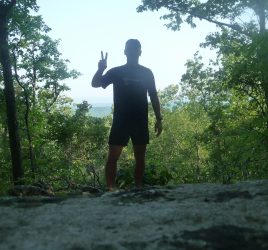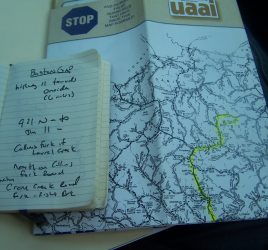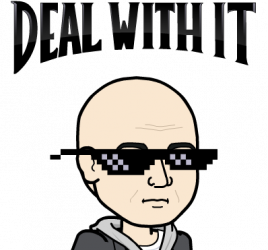On Writing: Why I’ll Be Drunk and Hungover in My Book
“You waking up hungover in jail is right up my alley. The rest of it sounds too academic.”
That’s what Alex Heard said to me during our conversation after he finished reading my proposal. I can’t say I jumped for joy at that critique, but the conversation that followed helped me frame what I wanted to say and how I wanted to say it.
“Who are You Writing This For? What’s The Story You Want to Tell?”
Ask me about Appalachia and I’ll start to tell you stories about the people I’ve met, the places I’ve visited, and the personal history I’ve come to know.
I can string together tales, and connect dots in a way that weaves a pretty good tale, I’m told.
The more I’ve worked on this project, though, the more I’ve found myself moving away from that voice. I’ve been adamant that I want to write a book that is big and deep.
I’ve waffled with my voice. I’ve continuously toned down that storyteller within me because in real life that person has never felt very comfortable being around the people who I hope read this book.
It doesn’t matter how much I want to write for The New Yorker and the NPR crowd, I forgot an important rule: Write you.
I’ve spent the better part of my adult life crafting my voice as a writer, a voice that I have come to enjoy when it’s working well and a voice that is — for better or for worse — me. It’s not a voice that’s ever fit in with the type of elite circles I was lucky enough to run around with during my time in journalism.
In the process of writing the proposal, I began thinking about how that audience would feel and react. I worried that my voice would fall flat, and that would end up propping up the very Appalachian stereotypes I was aiming to knock down.
I got scared, and I wrote a clinical proposal. I hit the beats, but the patient didn’t have a pulse.
The Importance of Being Edited
When I first started this project, I was adamant that it would be an independent production and not a vanity publishing deal. In order for that to happen, I had to hire professional editors, designers, and distributors.
The first order of business: Find an editor.
As I spoke to writer friends and solicited advice, I narrowed the field to a handful of potentials. My last call was to Evan Ratliff, a Wired alum. We both agreed that Alex would be the perfect guy for this job because we’d both learned how to be journalists at his feet.
Many years ago, I sat in a little cubicle across from Alex when he was Wired‘s executive and I was a lowly editorial assistant. Evan sat at the end of my row next to the editors. He ran the research desk, and even though he was younger than I was, he seemed way more accomplished.
I was just a 27-year old Appalachian kid in his second year of graduate school at Berkeley. Every day I woke up and couldn’t believe I was working in San Francisco for the magazine I grew up reading.
Most of the time, I was scared out of my mind, and I masked that by being loud and drunk. I didn’t know what I was doing, and honestly, I felt like I failed far more often than I succeeded. When Wired.com offered me a job, the Wired senior staff wished me well, which only supported the notion that I wasn’t very good at my job.
Leap ahead a decade: I’m a little less useless now, and Alex has gone on to become the editorial director at Outside Magazine.
I liked the symmetry of working with Alex, but I also knew he’d make sure that I found me in the story.
“What are You Trying to do”
The whole argument of the book is that you can’t understand the America of today without understanding the history of Appalachia.
It’s really that simple, but I’ve tiptoed around that idea for far too long.
I’ve also avoided the reality that to tell the story, I’m going to need to tell my story. I have to give the reader somebody to go with on this journey, and I’m the most logical choice since we both start in the same metaphorical place.
When Alex told me that he understood me waking up in drunk in jail, (I think) it’s because he (and frankly everyone who hears the story) quite naturally wants to know what happens next.
That’s the essence of storytelling. The journey between the darkness of rock bottom and the light at the exit should make you want to know what happens next.
I am Appalachia
I’ve struggled for months with the idea that I am about to write a book about Appalachia, my ancestral home but a place from which I am largely estranged.
I am getting ready to argue to the world that they don’t understand the Appalachian experience, and that because of that they can’t understand America.
I am doing this, and yet I am one of the very people whom I will be arguing this point. I am just learning what the Appalachian experience means for me and how that has shaped my view of the world.
That’s why my story has to be part of the book because it gives the reader room to feel the range of emotions they (hopefully) will feel as I peel back the layers that drive us as we think about education, guns, civic engagement, and poverty.
The reader will get that room because I’ve had to learn how to find that room for myself. To write this book, I had to find my way to say, without hesitation, that I am Appalachia.
So, here we go:
As I coaxed open my eyes, I could see the snaking stream of piss worming its way down three or four feet from against the block wall. For a few moments, a warm wash of nausea swept through my body. This was jail.



